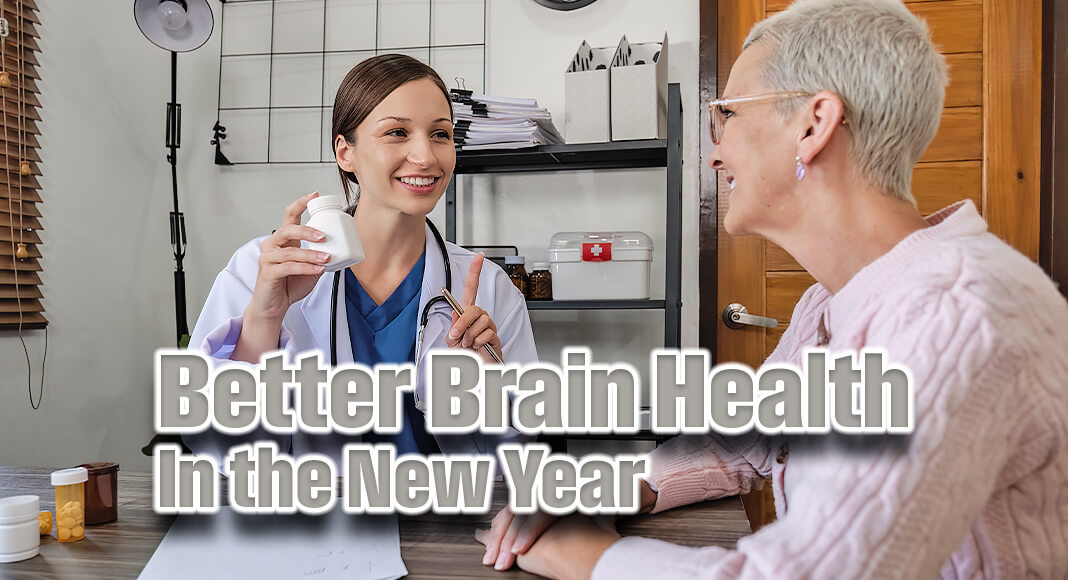
Mega Doctor News
By American Academy of Neurology (AAN)
MINNEAPOLIS – Improving your brain health in the new year can start with a simple step, talking with your neurologist or primary care physician about 12 factors to protect your brain. The factors are outlined in an Emerging Issues in Neurology article developed by the American Academy of Neurology and published in the December 16, 2024, online issue of Neurology®, the medical journal of the American Academy of Neurology.
“Neurologists are the experts in brain health, with the training and insight needed to help you keep your brain in top shape throughout life,” said American Academy of Neurology President Carlayne E. Jackson, M.D., FAAN. “The American Academy of Neurology’s Brain Health Initiative is leading the way, improving brain health for all by providing neurologists with important information on preventive neurology. This article can serve as a great conversation starter for you and your physician about ways to keep your brain healthy.”
The article outlines 12 factors that influence a person’s brain health at all stages of life. It includes questions for each of the factors that you can discuss with your physician.
• Sleep: Are you able to get sufficient sleep to feel rested?
• Affect, mood and mental health: Do you have concerns about your mood, anxiety, or stress?
• Food, diet and supplements: Do you have concerns about getting enough or healthy enough food, or have any questions about supplements or vitamins?
• Exercise: Do you find ways to fit physical exercise into your life?
• Supportive social interactions: Do you have regular contact with close friends or family, and do you have enough support from people?
• Trauma avoidance: Do you wear seatbelts and helmets, and use car seats for children?
• Blood pressure: Have you had problems with high blood pressure at home or at doctor visits, or do you have any concerns about blood pressure treatment or getting a blood pressure cuff at home?
• Risks, genetic and metabolic factors: Do you have trouble controlling blood sugar or cholesterol? Is there a neurological disease that runs in your family?
• Affordability and adherence: Do you have any trouble with the cost of your medicines?
• Infection: Are you up to date on vaccines, and do you have enough information about those vaccines?
• Negative exposures: Do you smoke, drink more than one to two drinks per day, or use nonprescription drugs? Do you drink well water, or live in an area with known air or water pollution?
• Social and structural determinants of health: Do you have concerns about keeping housing, having transportation, having access to care and medical insurance, or being physically or emotionally safe from harm?
By discussing these factors with your neurologist or primary care physician, they can then provide advice, medical care and resources to help you take steps to improve your brain health.
“Continued advocacy by neurologists, including efforts to fund scientific research and improve access to health care, improves brain health on a national level,” said author Linda M. Selwa, MD, of the University of Michigan in Ann Arbor and a Fellow of the American Academy of Neurology. “Our article shows there are many ways to improve brain health individually. Resolving to improve your brain health in the new year is a great start.”
The Emerging Issues in Neurology article was developed by the American Academy of Neurology.
Discover more about brain health at BrainandLife.org, from the American Academy of Neurology. This resource also offers a magazine, podcast, and books that connect patients, caregivers and anyone interested in brain health with the most trusted information, straight from the world’s leading experts in brain health. Follow Brain & Life® on Facebook, X and Instagram.
The American Academy of Neurology is the leading voice in brain health. As the world’s largest association of neurologists and neuroscience professionals with more than 40,000 members, the AAN provides access to the latest news, science and research affecting neurology for patients, caregivers, physicians and professionals alike. The AAN’s mission is to enhance member career fulfillment and promote brain health for all. A neurologist is a doctor who specializes in the diagnosis, care and treatment of brain, spinal cord and nervous system diseases such as Alzheimer’s disease, stroke, concussion, epilepsy, Parkinson’s disease, multiple sclerosis, headache and migraine.









